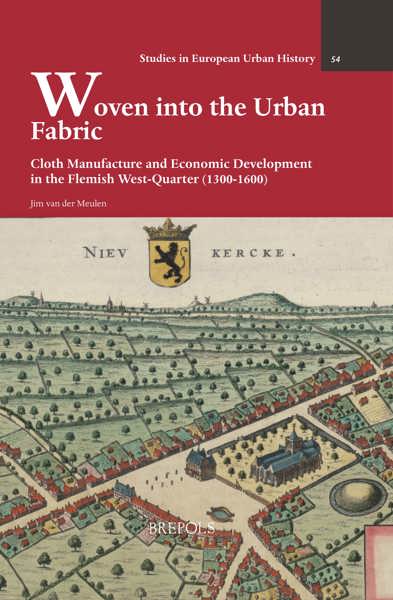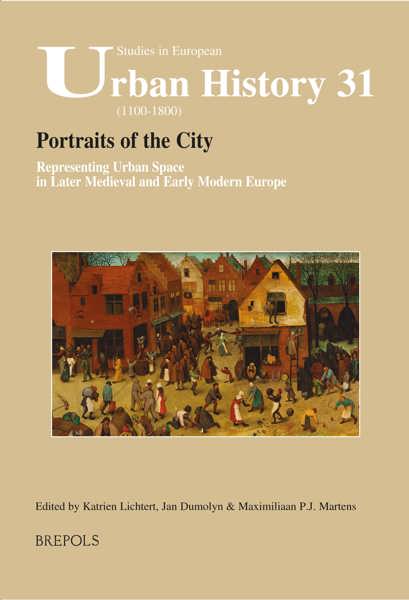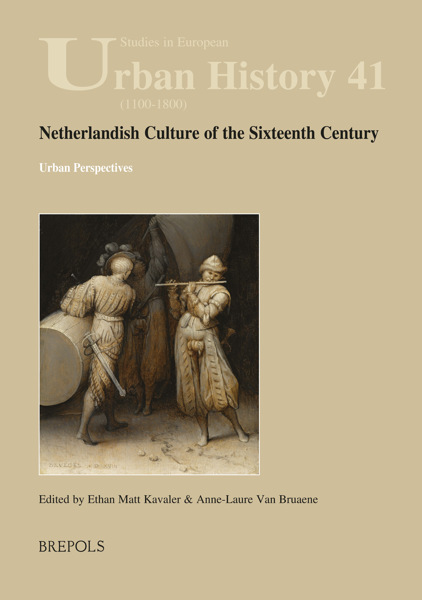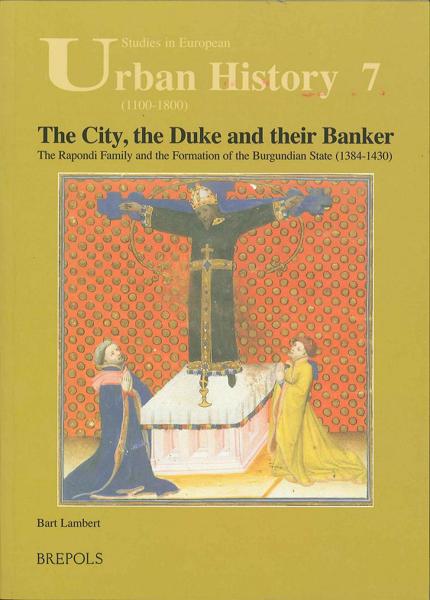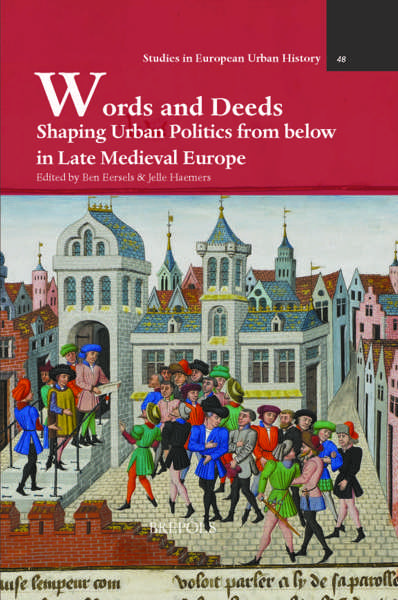
Woven into the Urban Fabric
Cloth Manufacture and Economic Development in the Flemish West-Quarter (1300-1600)
Jim van der Meulen
- Pages: 251 p.
- Size:178 x 254 mm
- Illustrations:15 b/w, 13 tables b/w., 1 maps b/w
- Language(s):English
- Publication Year:2022
- € 84,00 EXCL. VAT RETAIL PRICE
- ISBN: 978-2-503-59455-2
- Hardback
- Available
- € 84,00 EXCL. VAT RETAIL PRICE
- ISBN: 978-2-503-59456-9
- E-book
- Available
Woven into the urban fabric is a regional study about economic development in the late medieval Low Countries that offers novel insights and conclusions pertinent to all economic historians of pre-industrial Europe through its innovative combination of widely diverse source materials and state-of-the-art analytical frameworks.
"Woven into the Urban Fabric. Cloth Manufacture and Economic Development in the Flemish West-Quarter (1300-1600) is een erg boeien en kwalitatief boek dat stof tot nadenken levert voor stads- en plattelandshistorici en dat ongetwijfeld zal leiden tot nieuw empirisch onderzoek." (Mathijs Speecke, in Handelingen van het Genootschap voor Geschiedenis te Brugge. Vol. 160:1, 2023, pp. 99-101)
“What is certain is that the analysis of case studies like the one presented here can, at the very least, provide new and more detailed insights grounded in local circumstances and often overlooked socio-cultural peculiarities. This process of revision is greatly facilitated by the synergistic utilization of abundant and diverse archival sources, which the study extensively relies upon.” (Francesco Ammannati, in The Low Countries Journal of Social and Economic History, 20/3, 2023, p. 224)
Jim van der Meulen obtained his PhD-degree from the University of Antwerp in the fall of 2017. Currently he is affiliated with Ghent University as a post-doctoral researcher in a team-project, financed by the ERC, about late medieval lordship in Europe. His research interests stretch from the socio-economic development of late medieval society to political elites and state formation in the same period, with a regional specialization in the Low Countries.
This regional study focuses on the socio-economic development of the so-called West-Quarter of the county of Flanders during the period 1300-1600. Through the expansion of potent textile industries in the countryside from the fourteenth century onwards, this region gradually attained distinctly ‘urban’ characteristics in terms of production scale, specialisation, product quality, and the aim for external markets. By the middle of the sixteenth century the West-Quarter had even become one of Flanders’s main production regions of woolen cloth. This book assesses how and why this economic expansion took place, why it happened at that particular moment, and why in this region. The broader aims of the research are twofold: first, to offer a contribution to the debate on Europe’s transition from a ‘feudal’ to a ‘capitalist’ or market economy by looking at the influence of specific social structures and institutional frameworks on the economic development of pre-industrial societies. Secondly, this book contributes to the debate about the divide between town and countryside in pre-industrial Europe, combining the outlooks and methods of both urban and rural historians in order to qualify this supposed dichotomy.
